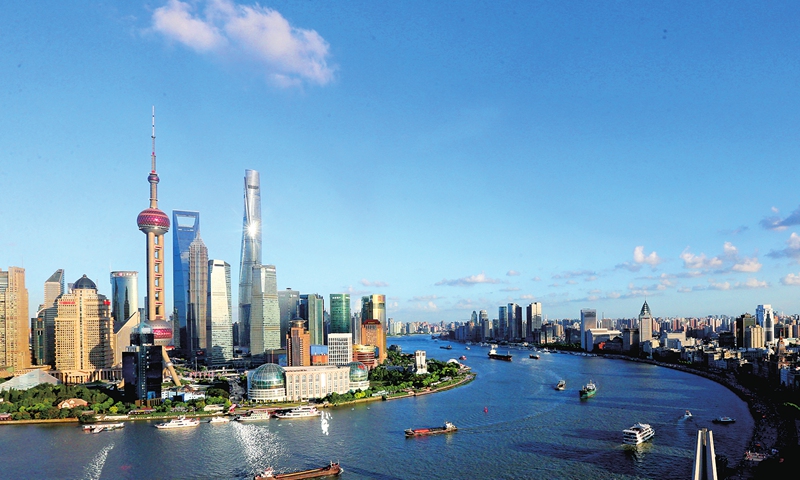
Photo:Xinhua
To date, 70 percent of Shanghai's key enterprises have resumed operations, as the city of 25 million people is still struggling with the recent COVID-19 flare-up.
Given the economic importance of Shanghai to the overall Chinese supply chain, many questions have been raised: When will economic activities in the city and its surrounding areas return to normalcy? How will the epidemic resurgence weigh on China's economic growth? In particular, the impact of the logistics and supply chain disruption on foreign businesses has triggered attention among some foreign business groups and Western media outlets.
Siegfried Russwurm, president of the Federation of German Industries (BDI), said that German businesses are concerned about the potential disruption to production process in the coming weeks, particularly those that rely on the imports of raw materials or the delivery of construction components, as well as those that transport finished goods by sea, German media reported over the weekend.
Such concerns of these foreign companies are understandable, and the central government has already listened and taken these concerns seriously. The Chinese government has actively taken targeted measures to help affected enterprises, including foreign-funded ones, to relieve their difficulties while managing epidemic control in the city, Ministry of Commerce spokesperson Gao Feng said during a regular press conference on Thursday.
Shanghai is not just China's largest financial hub, but also home to many high-tech industries. Some of the most advanced enterprises in China or even in the world have set up factories in the city. So ensuring the smooth resumption of economic activities for both domestic and foreign companies in Shanghai is certainly a top priority for China.
But it is also worth noting that it is impossible for China's dynamic zero-COVID policy to be compromised in any city just because of its economic significance. Therefore, the resumption of work and production in Shanghai must be based on the full implementation of the unified national policy of bringing the epidemic under control. It is under that premise that Shanghai will certainly take seriously some specific concerns of foreign companies and solve them one by one.
Nevertheless, it should also be pointed out that for foreign businesses operating in China, regardless of where they come from and how big they are, they need to respect and comply with China's laws and regulations, particularly when it comes to anti-epidemic policies and measures.
At present, it is, of course, the government's responsibility to find a solution as to how to mitigate the impact of epidemic prevention and control policy on logistics and supply chains, but foreign businesses also need to adjust and adapt their businesses to China's overall social and economic situation, if they were to operate and succeed in the Chinese market.
It is because of the dynamic zero-COVID policy that the Chinese economy was the first to recover over the past two years, with the general stability of its supply chains. These efforts should not be simply obscured by some temporary disruption and difficulties.
There is also no denying that China is seeking to maintain a balance between epidemic prevention and normalcy of economic activity, which may take some time and effort to explore. Such a process is a microcosm of China's decades of exploration ahead, as many of its policies since the reform and opening-up have been shaped with continuous adjustments aimed at suiting China's real social conditions and developments. In this sense, how to resume production in Shanghai needs the joint efforts from the government and companies to constantly adjust and adapt to the epidemic situation.




